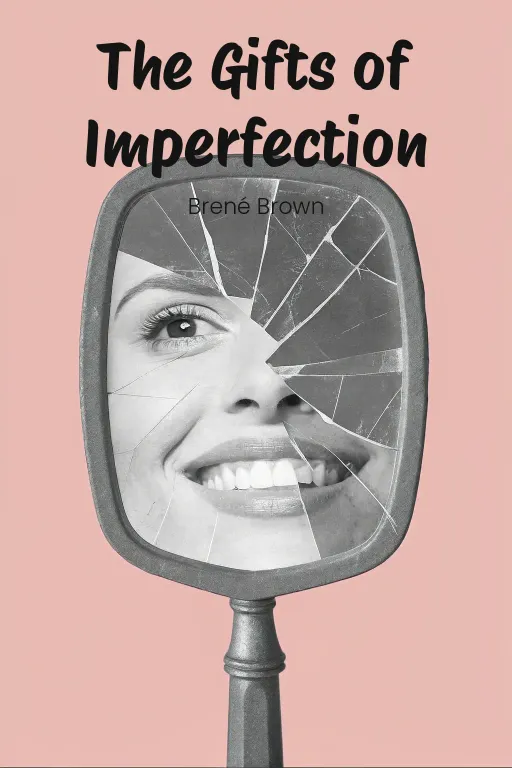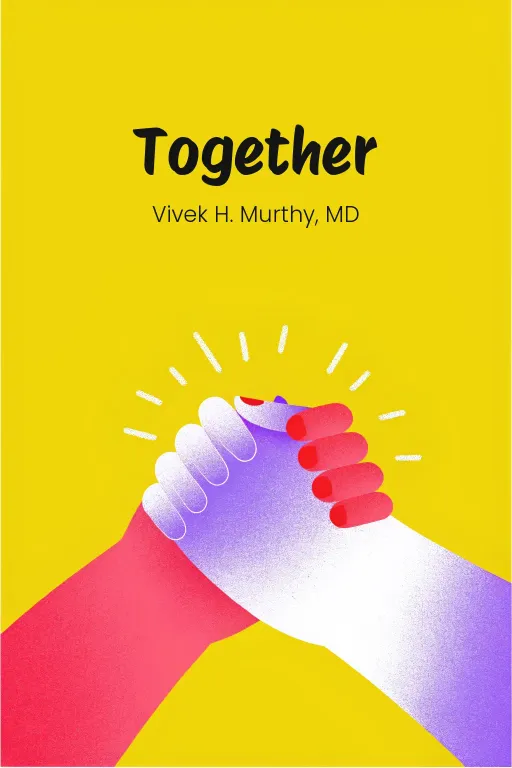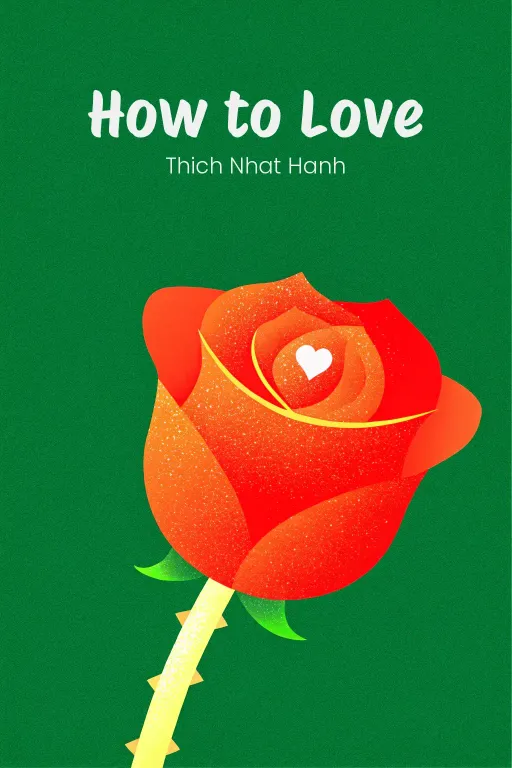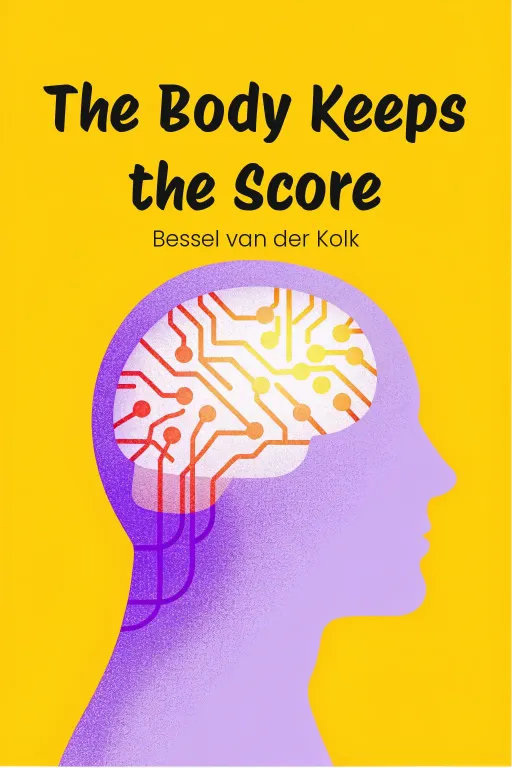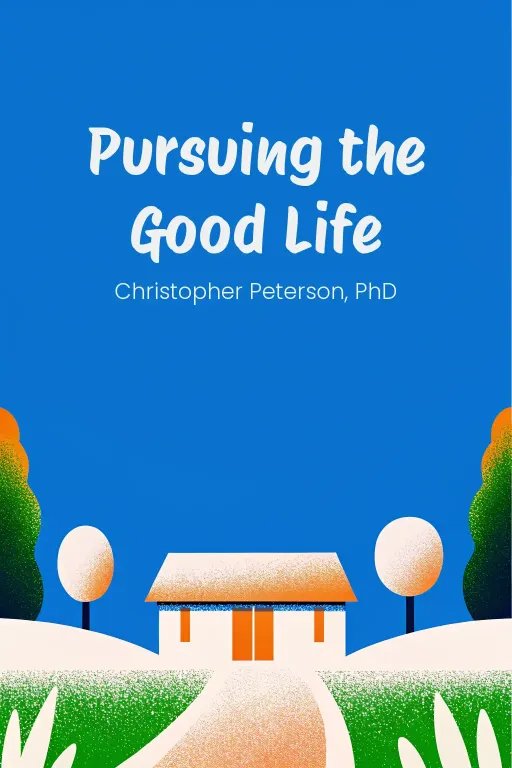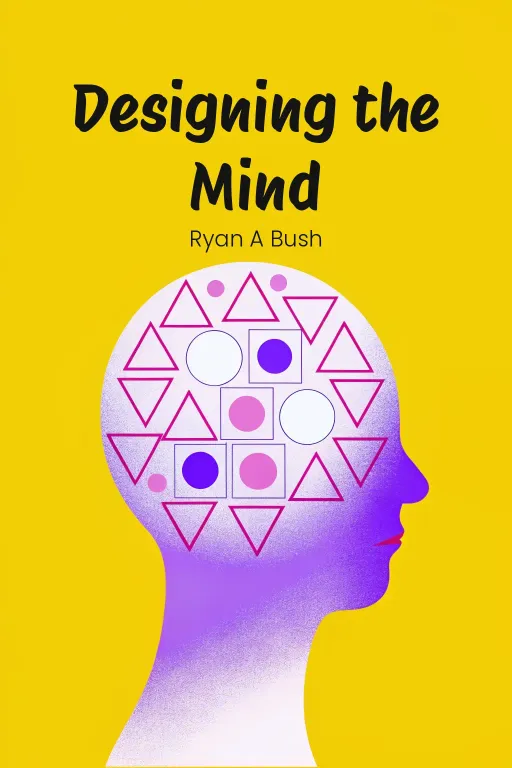
Love's Daily Dose: Grow, Flow, Connect!
Podcast by The Mindful Minute with Autumn and Rachel
Introduction
Part 1
Autumn: Hey everyone, welcome! Today, let's kick things off with a question that's simple, yet… really profound: What “does” it truly mean to love someone? Is it all butterflies and fireworks, or is it more about that steady, reliable support when life throws you curveballs? Rachel: Or, you know, is it simply being comfortable sharing your Netflix password? Just kidding… mostly. But Autumn, seriously, “love” is such an overused word, right? It's everywhere – in songs, movies, ads… yet, how many of us actually get it? Autumn: Exactly, Rachel. And that's why I'm excited about today's topic. We’re diving into a really fascinating approach to cultivating love – not as just some abstract, fuzzy feeling, but as a practice that’s really grounded in mindfulness and, of course, compassion. Rachel: Okay, so less of the rom-com montages and more about actually growing love? Color me interested. Autumn: Precisely! This book really emphasizes how love isn’t static. It's expansive. It’s deeply connected to how well you know yourself. It shows us how mindful practices – things like compassionate listening and metta meditation – can turn our relationships into spaces built on respect and promoting healing. Rachel: Healing, huh? Sounds beautiful on paper, but I'm guessing there are, shall we say, a few bumps along the road? Autumn: Definitely! That's where this framework gets practical, I think. In this podcast episode, we’re going to explore what true love is through three different lenses. First, we'll look at the foundation, seeing it as this life-giving force that adapts and expands when it's really nurtured. Then, we'll talk about the mindfulness practices – those things that kind of act like sunlight, fueling its growth. And finally, we'll look at the obstacles that get in the way – things like pride and distraction – that block love's flow, a bit like a dam in a river. Rachel: Ah, so love is a river now? Flowing, full of sunshine, but prone to flooding when we get in its way. I like it. Alright, let's start untangling this metaphor, shall we?
The Nature and Foundation of True Love
Part 2
Autumn: Okay, let's jump right into it – true love as this expansive, resilient force. You know, Rachel, people often misunderstand love as something fragile, like a precious little thing you have to protect with your life. But the teaching actually describes it as a river, something boundless, powerful, constantly flowing. Rachel: A river, huh? So it could sweep you away or drown you, depending on the current? I'm both intrigued and slightly concerned already. Autumn: Not exactly! The important aspect of this metaphor is the river's transformative nature. Think of it this way: if you drop a handful of salt into a glass of water, it's ruined, right? But if you dump that same salt into a huge river, it's barely noticeable. The river's vastness absorbs and neutralizes the impact. Love, especially love rooted in mindfulness, can handle and transform whatever obstacles come it way – misunderstandings, flaws, even conflicts – without breaking apart. Rachel: So, we need to build hearts like incredibly massive rivers. We have to increase our capacity for love so that the difficult moments – criticism, missed birthdays, disagreements on what to do on the weekend– don't drown us? Autumn: Exactly! A heart filled with narrow, selfish love, like that small glass, cracks under pressure. But an expansive heart, like the river, becomes more resilient. By thinking this way, love does more than just endure; it thrives even when things get tough. Rachel: Alright, I'm gonna pause here and say, "Sounds wonderful in theory, Autumn," because, well, life isn't always gentle currents. What if one person is carrying all the emotional weight? Rivers can dry up, you know. Autumn: They can indeed, if they're not replenished. Which leads to the next thing: love won't last without constant care and attention. Think of it like plants needing consistent care. Neglect leads to them withering away, but attention and effort – whether through kind words, shared joys, or simply being mindful – keep it alive. Rachel: So now we're gardeners of love, are we? Watering it daily with compliments and pulling out the weeds of resentment? Autumn: Pretty much! The reading even offers this beautiful example of a couple in Bordeaux. After years of marriage, they’d grown apart—stuck in their routines and barely talking. But during a mindfulness workshop, the husband finally said that he was thankful for his wife, something he hadn’t done in ages. Just a few little words—like acknowledging her hard work and kindness—moved her to tears. That small act of appreciation rekindled their love. Rachel: Fascinating. And likely cheaper than going to couples' therapy! But why does something so simple – just saying "thank you" – have so much of an impact? Autumn: Well, gratitude—it’s like sunlight for love. When we show genuine appreciation, it nourishes the bond between partners. Without it, love stagnates, like a tree left in the dark. Which brings us to another comparison: love as a growing, branching tree. Rachel: A river and a tree? It sounds like we are assembling a complete love ecosystem. But I think I see what you mean—a tree really needs space to grow, to find sunlight, and also to expand its roots, correct? Or else it may die? Autumn: Precisely! Real love is a very lively, growing thing. It starts as a seed between two people but needs to grow outwards, connecting to family, friends, and the wider community. Relationships that remain stuck in a pattern, becoming self-contained, risk declining. And here’s the deeper part – much like trees share minerals through their root networks, love too is all connected. Happiness or hardship shared in one relationship affects others. In that regard, love isn't just personal, it’s communal. Rachel: Okay, I'm following you so far. Love's a river, a tree, and apparently a social butterfly. So what happens when distractions start butting in—the “weeds,” as you mentioned—start taking over? Autumn: Great question, because distractions and misconceptions are probably the biggest reasons love may not grow at its best. For example, the meditation warns against mistaking infatuation for actual love. Infatuation is very exciting but shallow—more about oneself, and how the other person makes them feel, as opposed to mutual care or really getting to know the other person. Rachel: Like getting hooked on that dopamine rush? Let's be serious—infatuation feels amazing. But you're saying it's like putting a flower in the sand—no roots, doomed to fail eventually? Autumn: Absolutely. Infatuation tends to cover up unresolved issues, whereas genuine, real love involves both self-awareness and emotional depth. For instance, someone struggling with inadequacy… they might seek validation in a partner. The validation seeking could create dependency instead of actual connection. Only by confronting those personal issues and being self-compassionate do they make space for real love. Rachel: That makes sense. Thinking of self-awareness is like clearing the space—making space for really meaningful things to grow. Autumn: Yes! And healing oneself like that benefits both people involved. When they stop looking for someone to "complete" them, and instead approach it as a shared, enjoyable experience, the connection grows much more satisfying and stable. Rachel: I will concede, I was somewhat critical of all your comparisons at the beginning. But now they're starting to make sense. Actually growing and sustaining love now sounds less like magic, and more like... well, adult gardening. You need effort, you need balance, and you also need patience. Autumn: That’s the key. True love isn’t just about fireworks and grand gestures or passing feelings – it’s about being consistent, and always being mindful. By knowing that it’s interconnected, we can make love that flourishes and touches everyone around us.
Cultivating Love Through Mindfulness
Part 3
Autumn: So, after laying the groundwork with understanding love as this interconnected, flowing force, we're diving into the practical stuff, right? How we actually nurture it? Because, as we've said, love needs conscious effort to thrive. Rachel: Exactly. We're moving from theory to practice, exploring how to keep love alive and growing. And that's where mindfulness comes in. It's not just a trendy word, but a set of real tools. We'll be looking at how things like conscious breathing, hugging meditation, mindful communication, and even daily meditation can really transform your relationships. Autumn: So, you're saying we can breathe, hug, and talk our way to happier relationships? Seems almost too simple. Rachel: But it's true! When you do these things mindfully, they can make a huge difference. Let's start with conscious breathing. It may seem basic, but it's incredibly powerful. Think about it: when you're arguing, what happens to your breath? You tense up, it gets shallow, and suddenly you're just reacting without thinking. Autumn: Oh, totally. It's like, "Why didn't you take out the trash?" suddenly becomes a referendum on your entire life. Rachel: Exactly. Conscious breathing helps you break that cycle. Like, there's this mantra from Thich Nhat Hanh: "Breathing in, I know my dear one is in my arms, alive. Breathing out, she is so precious to me." It's not just pretty words—it's a way to ground yourself. Imagine, in the middle of a fight, instead of yelling, you pause, breathe, and remember how much you value the other person. Autumn: Okay, but what if you're still boiling mad? Breathing isn't going to magically make the trash disappear or unburn the risotto. Rachel: No, it's not about ignoring your feelings. Breathing just gives you a little space, a moment to calm down enough to figure out what's really going on. Is it really about the risotto, or is it something deeper—like feeling unappreciated or ignored? Once you know the real issue, you can deal with it instead of just exploding. Autumn: That makes sense. It's like stopping a runaway train. Instead of things escalating, one person's calmness can kind of reset the whole situation. It's contagious, really. The text mentions a couple arguing, and one person just stops to take a few deep breaths. That's it. Suddenly, they're sitting down and talking instead of slamming doors. Little things like that make a difference. Breathing becomes a way to defuse conflict and build understanding. Rachel: Okay, I get it—deep breaths, fewer slamming doors. But tell me about this hugging meditation. It sounds intriguing, but also a little...out there. Autumn: Well, hugging meditation is about taking something we often do without thinking—physical touch—and making it a moment of real connection. You hug mindfully, try to sync your breathing with the other person's, and maybe even repeat a silent mantra, something like, "Breathing in, I feel the life of my loved one. Breathing out, I appreciate this moment together." Rachel: So, it's like synchronized hugging? A high-performance hug? Autumn: <Laughs> Not exactly! It's not about performance, it's about being present. A hug like that becomes more than just a reflex. It's about “really” seeing and appreciating the other person. Imagine if, when someone's stressed, you hug them not out of habit, but to say, "I'm here. I see you. We're in this together." Rachel: That's actually pretty powerful. But let's be honest—synching your breath in the middle of a stressful moment? That feels like a tall order. Autumn: It might feel weird at first, but that's kind of the point. It forces you to slow down and be vulnerable. You know, the text has a great example of someone noticing their partner is stressed and, instead of just saying "You'll be fine," they give them a mindful hug. They breathe deeply, silently repeat the mantra, and just convey understanding through the hug. It becomes a "really" profound moment of connection, way more comforting than just words. Rachel: Alright, I'll admit, that sounds...transformative, assuming both people are on board. But what if the other person just isn't in the mood for a slow-motion, intentional hug? Autumn: Good point. These things work best when they're shared habits, something you both agree to try over time. Which actually leads us to the next practice: loving communication. It's all about creating a safe space for real, honest dialogue. Rachel: Okay, so we're talking about words now, not hugs. How is loving communication different from just...talking things out? Autumn: It's about “really” listening. Not just waiting for your turn to talk or defend yourself. There's this amazing question in the text: "Dear one, do you think that I understand you enough? Please share with me your difficulties, your suffering, and your deepest wishes." Asking something like that opens the door to real vulnerability and shows genuine care. Rachel: Wow. Even hearing that question makes me feel a little exposed. I can see that breaking down some serious walls. But, wouldn't it feel kind of weird to just drop that on someone over dinner? Autumn: It might at first, sure. But the heart of it—"Do you feel understood?"—that's a universal need. The text talks about a couple who went to a mindfulness retreat. They hadn't “really” talked like that in years. And when they finally asked each other that question, it brought out all these hidden struggles and hurts. But then, there was this feeling of relief, of finally being seen again. And that can rebuild trust. Rachel: So, the key is being an active listener—putting your own stuff aside long enough to hear what's “really” going on? Autumn: Exactly. And if you combine that with mindfulness principles—lessening your ego, letting go of "no self"—it changes the conversation from a battle of "who's right" to a shared effort to understand and heal. Rachel: I like that—communication as a collaboration, not a competition. So, where does meditation fit into all of this? I always thought of it as more of a solo thing. Autumn: It is, in a way. But the text “really” emphasizes how meditation is fundamental for having balanced relationships. Regular meditation helps you understand your own emotions better, so you can accept your own quirks, desires, and fears. And that self-awareness naturally makes you a better partner. Rachel: So, meditation is like relationship "pre-hab"? You deal with your own baggage before bringing it to the table? Autumn: Precisely! You know, someone who always feels inadequate might realize, through meditation, how those insecurities are affecting their interactions. Maybe they're overcompensating or blaming others. Once you see that, you can start to address those issues, and create space for healthier relationships. Rachel: And it's not just about fixing things, right? Doesn't meditation also help you appreciate what you already have? Autumn: Totally! Regular meditation can help you reconnect with the little joys you might be missing—the laugh you share over coffee, the peacefulness of a walk together. Those moments add up, and they sustain love in “really” subtle but powerful ways. Rachel: I'm starting to see a pattern here. All these things—breathing, hugging, listening, meditating—they're all about slowing down and being present. Autumn: Exactly. And together, they turn love into something more than just a fleeting feeling. They make it an intentional practice—a way of showing care, compassion, and presence every single day.
Overcoming Barriers to True Love
Part 4
Autumn: With these practices in place, we can explore how to actually overcome the barriers that prevent love from flourishing. True love isn’t solely about building mindful habits; it’s also about dismantling the walls that block its growth. Rachel: Okay, so this is where we get into the messy stuff, right? The pride, the insecurities, those misguided infatuations... All those emotional roadblocks that turn love into an uphill battle. Autumn: Precisely. This section identifies key barriers like infatuation, pride, and a lack of self-acceptance, and then offers strategies to overcome them. And the central truth woven through all of this is that vulnerability and self-awareness are absolutely crucial for fostering genuine love. Let's start with infatuation. It’s probably one of the most seductive—and deceptive—barriers there is. Rachel: Infatuation... So like, the honeymoon phase, basically? That giddy, sparkly, can’t-stop-thinking-about-you feeling? Autumn: Yes, exactly, and it’s not inherently a bad thing! But infatuation is often mistaken for love when, in reality, it’s a fairly self-centered fixation. It’s less about the other person and more about how they make you feel – how they fulfill your needs or maybe mask your insecurities. Rachel: So, it’s like falling in love with an idea of someone rather than who they actually are? Autumn: Precisely. Infatuation tends to be fueled by projection. Think of the metaphor from the text: infatuation is like pouring a handful of salt into a glass of water. It overwhelms and distorts the ‘water’ – your emotional clarity. True love, on the other hand, is like adding that same salt to a vast river. The expansiveness of that river absorbs the salt, making it manageable. It shows that true love, when rooted in mindfulness, creates space to handle flaws and challenges without losing its purity. Rachel: Okay, so if infatuation is this intense, small glass of water, how do you expand it into a river? What's the actual process? Autumn: It begins with mindfulness and self-reflection. There's a really great story in the text about a young professional who was infatuated with someone—completely swept up by their charisma. But through mindfulness, they realized that their attraction was less about the person themselves and more about escaping their own loneliness. By addressing their inner emptiness, they freed themselves from that dependency and made room for a deeper, more authentic connection. Rachel: Okay, so step one: disentangle your feelings. Figure out if you’re drawn to the person or just trying to avoid your own emotional pitfalls. But let’s move on to pride. That's a barrier I think everyone’s dealt with in some form. Autumn: Pride is a tricky one. It often masquerades as strength but fundamentally blocks intimacy. It stems from a fear of vulnerability—an unwillingness to admit mistakes, apologize, or ask for help. And when pride takes root in a relationship, it creates a real emotional distance. Rachel: Sounds about right. Pride is what makes people dig in during arguments or refuse to be the first to, you know, say sorry. But how do you even begin to address something that's so deeply ingrained? Autumn: Mindfulness plays a pivotal role here, too. Confronting pride starts with recognizing it in yourself. In the text, there's a story of a couple who kept clashing but couldn't reconcile because neither of them would give in. Eventually, one partner broke the cycle, choosing to admit their mistakes and apologize sincerely. That simple act of humility softened the other’s defenses, opening the door to honest communication and healing. Rachel: So the antidote to pride is vulnerability? But let’s be honest, admitting you’re wrong, especially in a heated moment, isn’t easy. Pride feels like, armor. Taking it off can feel… well, impossible. Autumn: I won’t sugarcoat it; it’s hard. Letting go of pride means confronting your ego, and that takes courage. One way is to practice metta meditation, which develops loving-kindness towards yourself and towards others. It helps shift the focus from being 'right' to fostering understanding and creating a connection. Imagine asking yourself during an argument, “What’s more important here: being right, or preserving our love?” Rachel: That’s a tough pill to swallow, but I get the logic. Pride's a wall you build to protect yourself, but in doing so, you end up shutting others out. Autumn: Exactly. Vulnerability might feel risky, but it's what true love “really” requires. And that brings us to the final barrier… self-acceptance. This is perhaps the most foundational one, because without it, love often becomes conditional or dependent, right? Rachel: Self-acceptance, huh? So, this is when people carry a whole suitcase of insecurities into relationships, looking for someone else to, you know, fix them? Autumn: That’s part of it, yes. When we lack self-acceptance, we often seek love as a form of validation—as some sort of proof that we're worthy. But relationships built on this kind of dependency... they struggle to thrive. The text uses the analogy of a flower. Each of us is a unique bloom, valuable in our own right. When we embrace our flaws and also our strengths, we can share love authentically, rather than seeking it to fill those emotional voids. Rachel: I like that image – a whole garden of unique flowers, with each adding its own beauty. But it’s one thing to talk about self-love and it is another to actually practice it. How do you actually get there? Autumn: The key, again, is mindfulness and gratitude. One person in the text, who battled feelings of unworthiness due to childhood criticism, transformed their mindset through a habit of daily meditation and self-reflection. By identifying and addressing their core wounds, they stopped relying on partners for validation. Instead, they began to see love as something to share, and not something to cling to. Over time, this shift allowed them to cultivate healthier, more balanced relationships. Rachel: That’s pretty powerful, isn't it? Learning to find love within yourself instead of expecting someone else to, like, magically supply it. But how does something like self-acceptance translate into forgiveness? Because I imagine that’s the next step. Autumn: Absolutely! Forgiveness is deeply tied to self-acceptance because it requires both humility and compassion—towards both yourself and others. The text emphasizes that forgiveness isn’t just about words, you know? It’s about consistent, meaningful actions that rebuild trust and demonstrate accountability. Rachel: Like that story about the father-daughter relationship, right? Where the father didn’t just, like, apologize, but actually then changed his behavior—showing up more, spending time with her, making his actions speak louder than words? Autumn: Exactly. His transformation wasn’t, you know, instant, but it was very genuine. Forgiveness only becomes real when it’s backed by effort and a change in behaviour. And mindfulness, again, plays a crucial role, fostering the emotional awareness needed to acknowledge harm and commit to mending it. Rachel: So, forgiveness isn’t about erasing the past; it’s about proving, through your actions, that you’re invested in a better future. Autumn: Beautifully put! And through that healing—relationships don’t just survive, they actually deepen. Addressing these barriers–infatuation, pride, self-doubt–opens the way for love that is both authentic and enduring.
Conclusion
Part 5
Autumn: Okay, Rachel, so to recap, we really dove deep into love, right? We explored its foundations as something expansive and resilient, the mindfulness that feeds it, and the obstacles that can stifle it. It turns out, real love isn't just some passive feeling. Rachel: It's not, is it? It sounds more like a very active project. A combination of deliberate choices, continuous effort, and a healthy dose of self-awareness. Autumn: Precisely! Love needs more than just fleeting feelings or grand gestures. It actually flourishes with intentional practices – like conscious breathing, active listening, even just a mindful hug. All these things are rooted in mindfulness, you know? And when we clear out the junk – things like pride, infatuation, maybe a lack of self-acceptance– we make some room. We create space for a connection that’s truly authentic and transformative. Rachel: So, whether it’s taking that mindful breath before you react, actively showing gratitude for the partner you might usually take for granted, or confronting your own insecurities, the message is pretty clear: Love grows when you show up—fully. For yourself, and for others. Autumn: Exactly! That’s the key takeaway here. Love, at its core, is about presence. It's not about being perfect, but about showing up every day with humility, compassion, and, yes, gratitude. Start small, right? Just breathe, listen, appreciate. And then watch how those itty-bitty actions ripple out into deeper relationships. Real love doesn't magically appear; you've got to create it. Rachel: And if all else fails, just remember to check in with yourself. I mean, maybe next time you’re about to blow up over something stupid, just… pause. Take a breath. Initiate a hug – with intention, naturally – and just see what happens. Autumn: Beautifully put, Rachel. Love is both the simplest and most profound thing we can practice. And with that, let's leave our listeners with a little something to think about: How can you show up with more mindfulness and compassion in your relationships today? Rachel: That's deep stuff, Autumn. I definitely have some thinking to do… and maybe some hugging too. Until next time, folks, take care of, uh, that river, tree, or garden of yours. Whatever fits. Autumn: And definitely don't forget to nurture yourself in the process! Goodbye, everyone!



